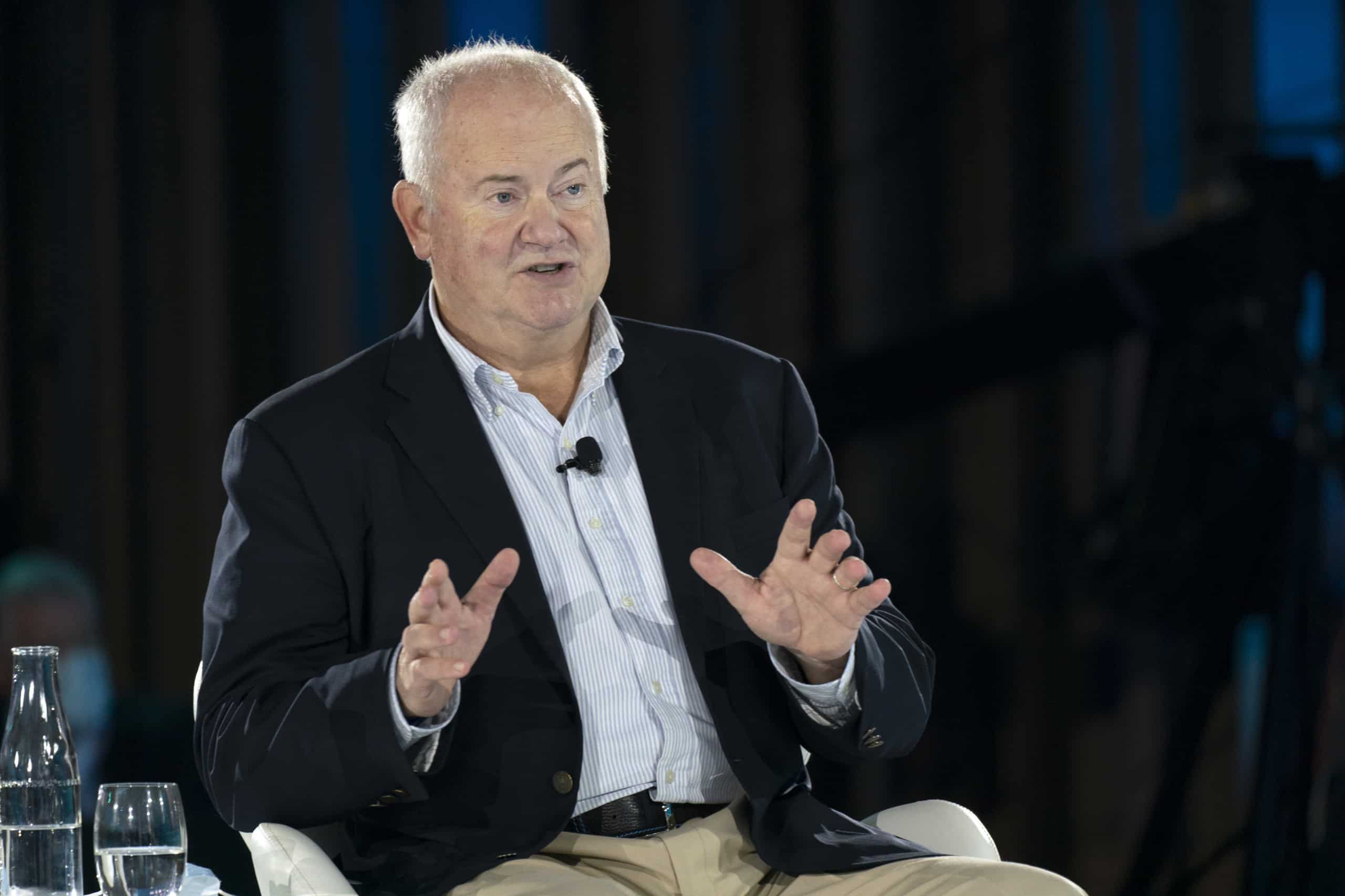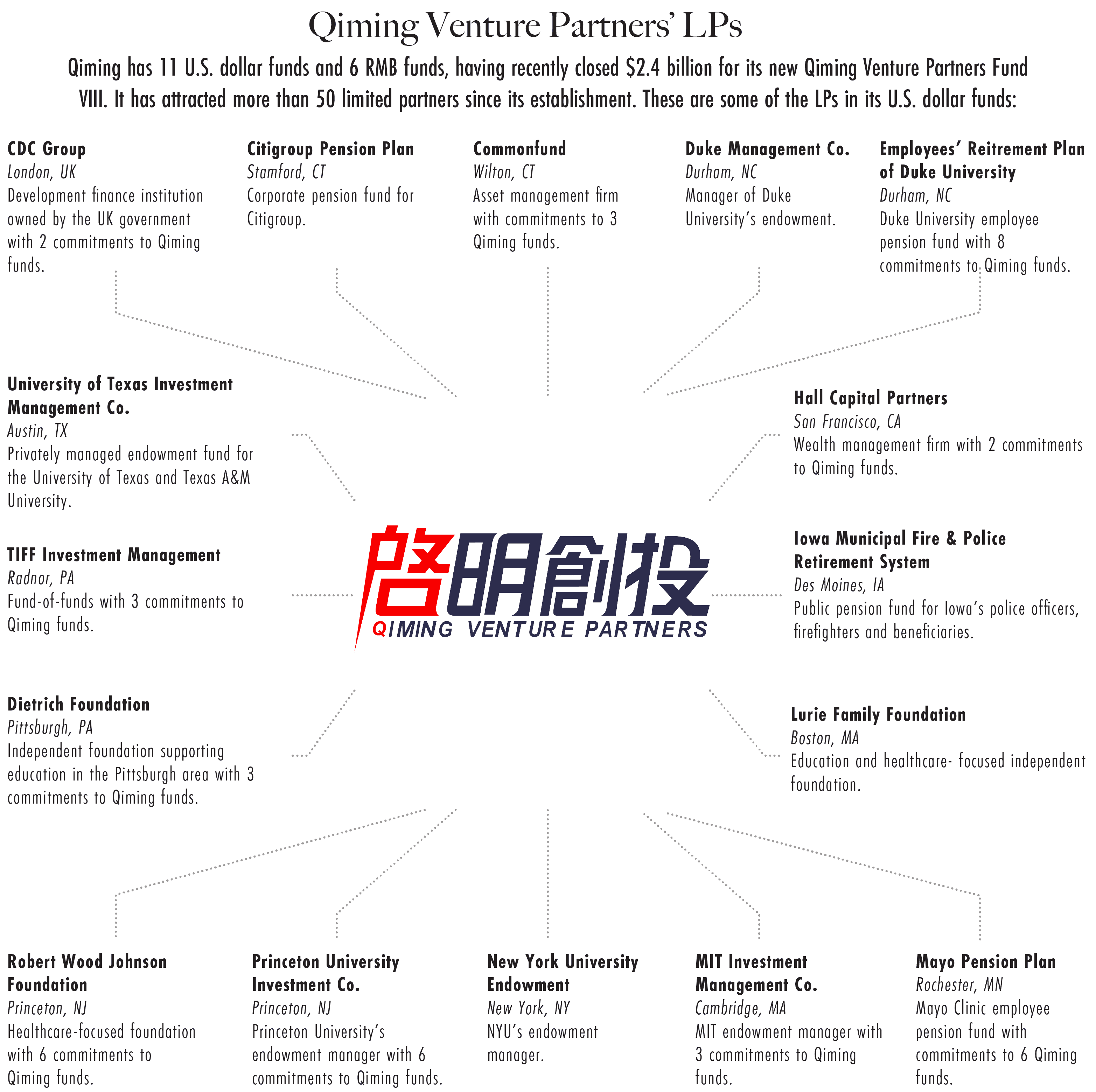
With China’s top economic officials signaling more support for its economy and financial markets, investors are wondering whether the bruising crackdown on China’s tech sector might finally be subsiding. Qiming Venture Partners is one top venture capital firm betting it is.
The Wire can confirm that Qiming recently raised $2.4 billion from U.S. institutional investors for its new U.S. dollar fund, Qiming Venture Partners Fund VIII. That figure significantly exceeds the $1.8 billion that the firm had been expecting to raise, a signal that institutional appetite for investing in China remains strong. Qiming, whose limited partners include U.S. university endowments, public pension funds and the UK’s development finance institution, now has over $8 billion in assets under management across 11 U.S. dollar funds and six RMB funds.
Qiming has a stellar record for backing unicorns. It made its name as an early investor in Xiaomi, now the world’s second largest smartphone maker, and has invested in well-known Chinese firms such as the delivery platform Meituan, TikTok owner ByteDance and Covid vaccine manufacturer Abogen. The firm specializes in two industries: TMT (technology, media, telecom) and healthcare, but more recently has focused on so-called “hard tech” sectors such as chips and enterprise software, aligning its investments more closely with Beijing’s policy goals.
At The Wire, we periodically showcase prominent firms investing in China. Thus far, we’ve looked at Huawei’s in-house VC fund, Yunfeng Capital, Hillhouse Capital, IDG Capital, and 5Y Capital. This week, meet Qiming Venture Partners.
QIMING’S MANAGEMENT TEAM
Gary Rieschel and Duane Kuang co-founded Qiming in Shanghai in 2006. All four of the firm’s current managing partners have been with Qiming since its founding. Rieschel and ex-pharma executive Mark McDade started Qiming U.S. with the firm’s first independent U.S.-based fund in 2017.

QIMING’S LIMITED PARTNERS
Qiming has had more than 50 limited partners in China and abroad over the last 15 years, according to data from PitchBook. Longtime backers include big names in higher education and philanthropy, including Princeton, Duke, MIT, NYU, the University of Texas, the Robert Wood Johnson Foundation and the Lurie Family Foundation. LPs in its RMB funds include Ping An Insurance Group, investment bank CICC and the Chinese Academy of Sciences.

MAJOR INVESTMENTS
Qiming has backed over 400 companies since its founding, more than 50 of which have gone public. The firm specializes in early-stage investments: 70 percent of its investments are in the Series A funding round, according to Qiming’s website.1Series A typically refers to a company’s first significant round of venture capital funding with institutional investors. What follows is a selection of some of the deals the firm has participated in since 2008:

ONE INVESTMENT: ZAI LAB
Zai Lab is one of China’s most prominent biotech companies. It was founded by Samantha Du, the “godmother” of China’s biotech industry, who made her career with Pfizer before serving as CEO of Hutchinson Medipharma, the maker of the first homegrown cancer drug to receive Chinese regulatory approval.
Qiming was one of Zai Lab’s earliest backers, leading its $35 million Series A round in April 2015 and participating in several more funding rounds. Zai Lab listed on NASDAQ in September 2017, with a valuation close to $900 million. Qiming remains Zai Lab’s largest shareholder and managing partner Nisa Leung sits on the company’s board.
The U.S. Securities and Exchange Commission put Zai Lab on notice in early March, naming it alongside four other Chinese companies for potential delisting. The move came after Congress passed a law in 2020 to force the delisting of companies that don’t turn over their audit records to U.S. financial watchdogs. Beijing has blocked Chinese companies from complying with such requirements by overseas regulators. Shares in Zai Lab tanked but have since rebounded amid reports that Chinese regulators will make concessions to allow companies to remain listed in the United States.
Here are Zai Lab’s major investors:


Eliot Chen is a Toronto-based staff writer at The Wire. Previously, he was a researcher at the Center for Strategic and International Studies’ Human Rights Initiative and MacroPolo. @eliotcxchen



